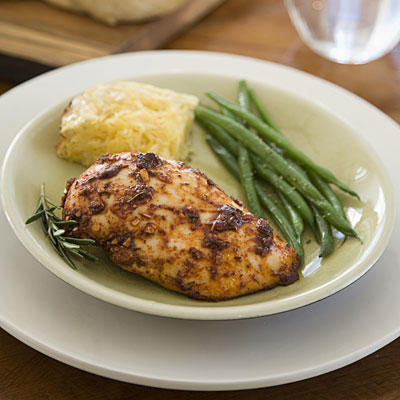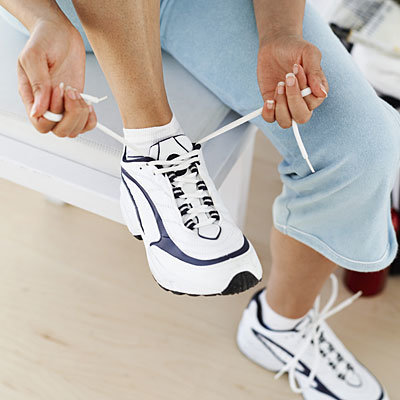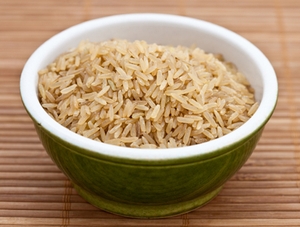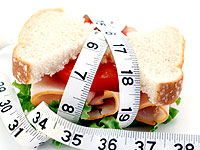Top 9 Weight Loss Supplements to Avoid
Top 9 Weight Loss Supplements to Avoid
We've scavenged the science so you don't have to. See which weight loss supplements are legit and which ones to avoid at all costs.
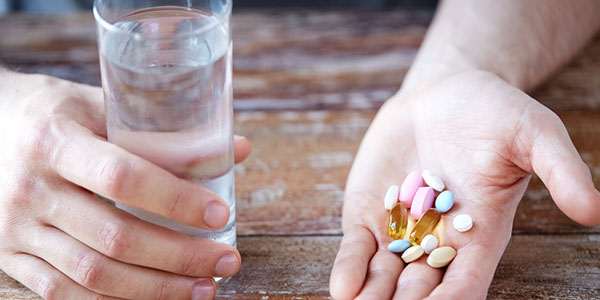
For years, people have been searching for that 'magic bullet' for losing weight, and losing it fast. If only weight loss were as easy as taking a pill every day, and magically extra pounds would just fall off.
There are many products on the market that claim to do just that-by boosting metabolism and promoting weight loss, and they claim that all you have to do is take a pill.
As we all already know, when something sounds too good to be true, it probably is.
So we scavenged the science to see which weight loss supplements were legit and which ones could use a good dose of cold, hard scientific reasoning.
Stimulant Supplements for Weight Loss to Avoid
1. Caffeine
The oh-so-popular caffeine supplements have been used for many years to stimulate your metabolism. You'll find it in weight loss supplements and energy drinks listed as guarana, cola (or kola) nut, green tea, green coffee extract, and yerba mate-which are all botanical sources of caffeine. The problem with these is the danger you may reach the upper limit (300mg) of daily caffeine intake, and this puts you at an increased risk for heart palpitations, gastrointestinal symptoms, headache, urinary tract infections, muscle spasms, shakiness, and psychological symptoms like anxiety and nervousness. That's why caffeine-containing supplements made our list of weight loss supplements to avoid. Just pour yourself a cup of coffee or brew some fresh green tea leaves instead.
2. Ephedra (Ephedrine)
Ephedra was banned in 2004 after 87 adverse events were reported, including hyper tension, arrhythmias, heart attack, stroke, and seizures. This is a well-known supplement to promote weight loss, increase energy, and has even been used to treat respiratory tract conditions such as asthma and bronchitis. But improper use of this botanical Ma Huang plant extract caused the FDA to ban this over-the-counter supplement in 2004.
3. Bitter Orange (Synephrine)
Bitter Orange is structurally similar to ephedrine, but it has not yet been thoroughly researched. There are some safety concerns with using this product. Some of the negative effects of taking this extract include chest pain, anxiety, and increased heart rate and blood pressure.
4. Hoodia
Hoodia is an extract from a succulent plant that grows in southern Africa. Rumors of hunters using it as an appetite suppressant caused hoodia to explode into the weight loss supplement market, and yet research showed that even high doses of hoodia did not have any effect on energy intake or body weight. Add to that its ability to increase blood pressure and heart rate, as well as possibly impair liver function, and this is definitely tops our list of weight loss supplements to avoid.
More Weight Loss Supplements to Avoid
5. Laxatives
Laxatives impair your body's ability to absorb key nutrients like electrolytes, and can result in dehydration, muscle cramps, and digestive issues when used improperly to lose weight. This is definitely a weight loss supplement to avoid, as you won't be burning extra fat by taking laxatives. Regularity is important for weight loss, but using laxatives for any other reason can cause short and long-term health issues.
6. Diuretics
These can cause water and electrolyte imbalances, and deplete your body of vital nutrients, such as potassium. Diuretics in weight loss supplements to avoid would be listed as Dandelion and Cascara. Dandelion may have diuretic activity, but neither have been studied specifically for weight loss in humans. Using these supplements long-term could result in adverse events similar to using diuretics, such as dehydration and electrolyte imbalances.
"Fat Blocker" Weight Loss Supplements to Avoid
7. Chitosan
Made from crustacean shells, chitosan claims to be a fat blocker and prevent fat absorption by binding to dietary fat within digestive tract. Initial studies found some results, but major flaws in the study design were found-and follow up studies failed to show any significant differences in weight loss between chitosan and a placebo. So we put this on our list of weight loss supplements to avoid.
Plant Supplements for Weight Loss to Avoid
8. Hydroxycitric Acid (HCA)
Hydroxycitric Acid is the active ingredient in the tropical fruit Garcinia Cambogia which can decrease fatty acid synthesis. Compared to a placebo, women who took 750mg of HCA for 12 weeks reported almost 3 pounds more weight loss than women who received a placebo. It sounds convincing at first, but another follow-up study that used double that amount, or 1,500mg of HCA, and showed no differences in weight loss compared to a placebo. So the jury is still out, but most health professionals advise against using this kind of supplement, because it won't lead to the kind of lasting results that come with diet and lifestyle changes.
9. Conjugated Linoleic Acid (CLA)
Conjugated Linoleic Acid is found in meat and dairy products. Supplement companies claim it reduces fatty acid deposition in mice, but a 12 week randomized-controlled trial using between 3-6g of CLA per day resulted in no changes in BMI. People also reported mild gastrointestinal symptoms as a result of taking CLA. So this made our list of weight loss supplements to avoid-and to keep you from wasting your time and money.
In the end, the best, most effective ways to lose weight and keep it off - include healthy diet and lifestyle changes. As much as we wish we could find a magic bullet and lose weight immediately, it just simply isn't the case, especially if you are looking for to keep weight off for the long haul.
Sources:
ROBERT B. SAPER, M.D., M.P.H., DAVID M. EISENBERG, M.D., and RUSSELL S. PHILLIPS, M.D.,Harvard Medical School, Boston, Massachusetts. Common Dietary Supplements for Weight Loss. Am Fam Physician. 2004 Nov 1;70(9):1731-1738.
DeBusk RM. A critical review of the literature on weight loss supplements. Integrative Medicine Consult 2001;3:30-1. American Academy of Sports Dietitians and Nutritionists Position Statement on the Endorsement and Sale of Nutritional Supplements. 2009.
http://ods.od.nih.gov/factsheets/WeightLoss-HealthProfessional/ Accessed 4.2.2015.
-
Weight Loss Diet - Needs Based Planning
Your weight loss program depends on your diet plan. The wrong diet pl
-
How To Make Your Own Weight Loss Recipes
If you are overweight or you really care about maintaining your weigh
-
The 7-Day Healthy Carb Kickstart Plan
Catherine Crowell Steele From
-
Diet tips - less is more
Did you know studies show that more than 90 per cent of dieters regai
-
Meal Delivery Service Curbs Bad Eating Excuses
Meal Delivery Service Curbs Bad Eating Excuses
-
Weight Loss Diet - A Plan That Really Works
Your weight loss diet helps your program to be successful. Your best
- DON'T MISS
- The Traditional Asian Diet: What To Know
- Supermodel Diet
- 5 Exercises for Tightening Different Muscles in Your Stomach
- One Simple Teaspoon of This Will Help You Lose 3 Times More Body Fat
- This Is How to Get Rid of Water Retention And Lose Weight Fast With This Simple Tricks & Tips!
- How to Get Back on Track After Overeating
- This Powerful Combination Has Great Efficacy In Detoxifying Your Body
- Video: The Best 7 Fat-Burning Exercises to Lose Weight Fast
- Dont Be A Weight Loss Idiot
- Biggest Loser Diet: What To Know
